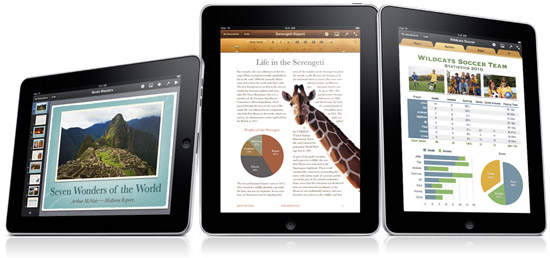Blog

Apple & Education: Revolutionary? Or A Step Too Far?
Some parents might worry that iPads and other electronic devices harm their children’s education; that Apple’s popular tablets act as a stand-in for a teacher’s skills in the classroom. The concern is that flashy presentation techniques and gimmicky apps are all pizzazz and no substance. You only have to look at the other side of the coin, no-tech schools that prohibit the use of screens and new technology, to see how real that concern is.
But teachers who have adopted the iPad into their daily lesson plans don’t see it that way. In a feature on TechRadar.com, two teaching experts explain why they think iPads enhance traditional teaching rather than diminish it. Classrooms will still be stocked with familiar instruments, exercise books and learning aids provided by suppliers such as Hope Education.
Daniel Edwards is the director of innovation and learning at the Stephen Perse Foundation school in Cambridge, where every student over the age of 11 is given their own iPad to use.
"The curriculum will define the content you require and the skills you would use to teach, but you would always adapt that, however you're teaching. That's the point," says Edwards in the article.
"For instance: a seven-year-old is given the water cycle to learn, and they've got to use a definition, an explanation, and a review. They can define it on paper, explain it and then review it by asking other people to comment.
"But what the teacher wants is their unique voice. I can get an audio recording of each module from every student and I can get what they understand and don't from their voice – and you get more from that than what they write."
Allied to the use of iPads is Apple’s iTunes U. It’s the online portal that lets teachers create bespoke courses that are available for all enrolled students. The service has seen almost 1.5 billion downloads so far, and its flexible nature means that teachers can make teaching resources accessible to students at any time.
Teachers can also add or take away elements for individual students depending on their abilities, helping lessons be more relevant to every pupil. Apps play a central role, with students tasked with using dedicated tools to solve problems or explain in their own words parts of what they learned.
So why are some teachers putting their lesson plans online?
"They're not designed for remote learning," says Simon Armitage, director of communication at the Stephen Perse Foundation school, in the same article. "[Teachers] on the outside say, 'Well, how am I supposed to teach using that?' Well, that's your bit."
"It's a resource, a different point of view," Edwards continues. "[A teacher] can look at Simon's course from another school and take 15 of those resources and use them in their course.
"There are loads of teachers posting content all over the place, telling people what they want to do, with which resources people can look at and use freely. It makes education in learning much easier."



Comments